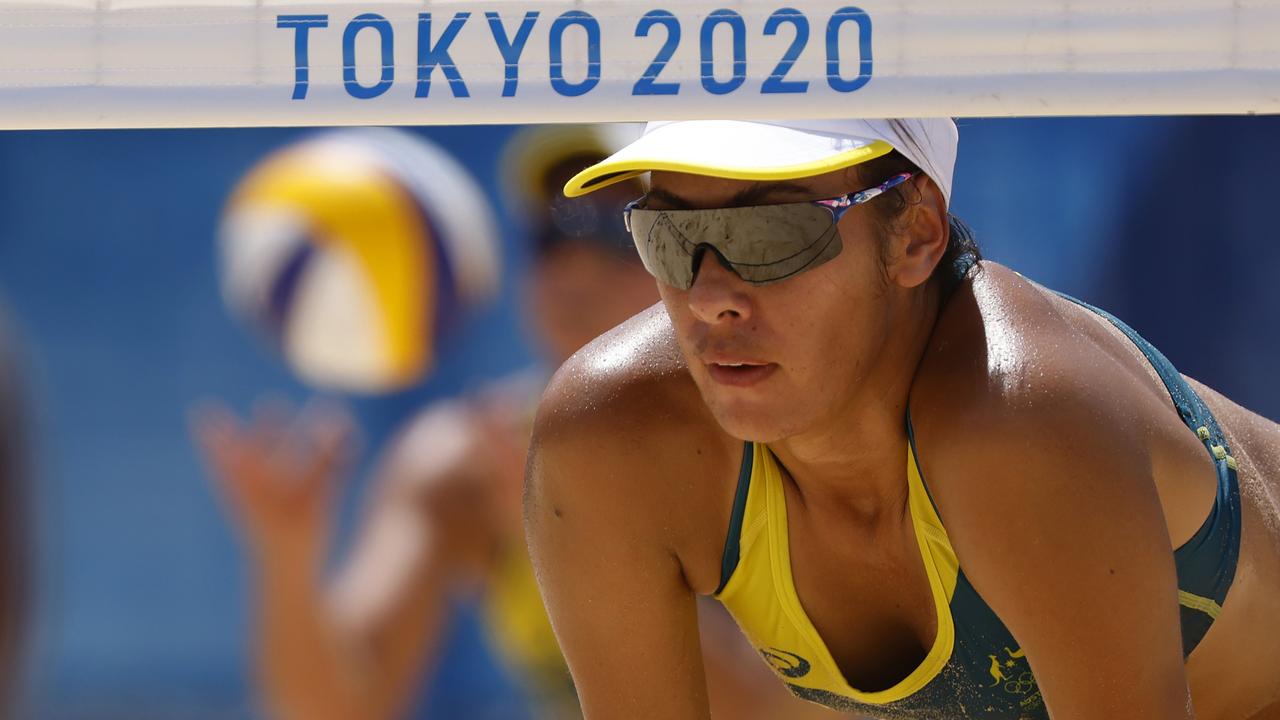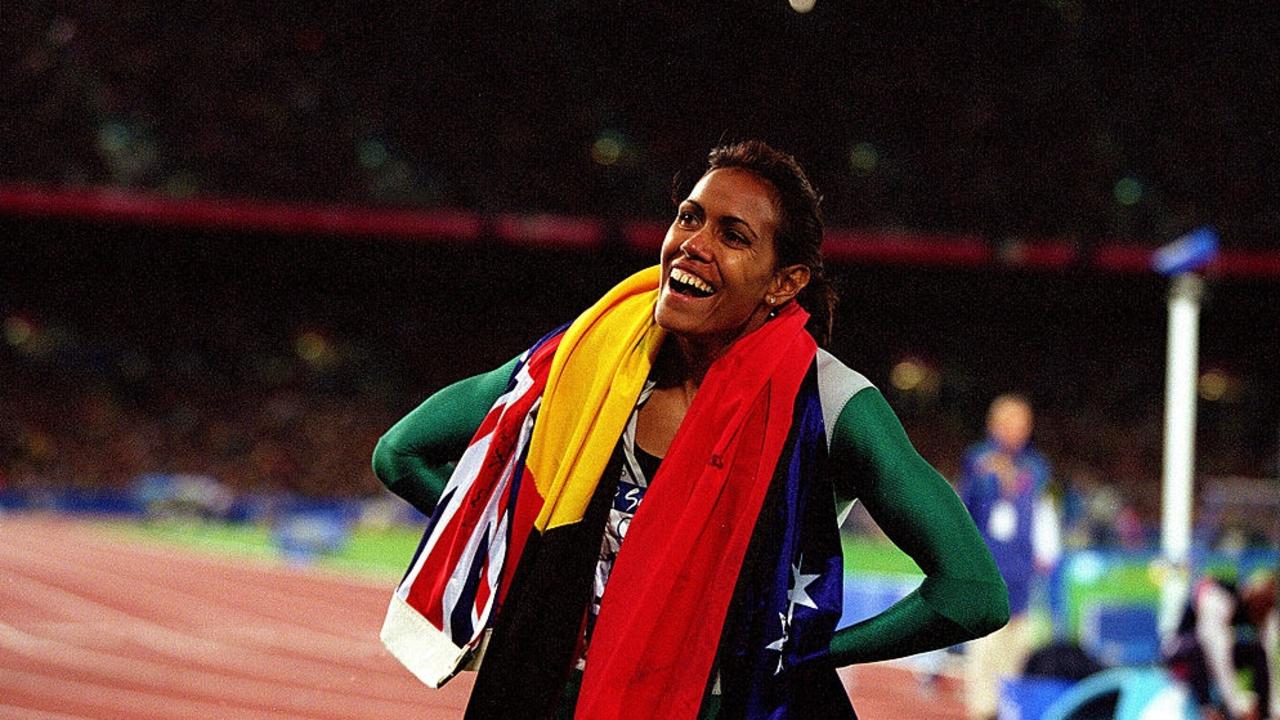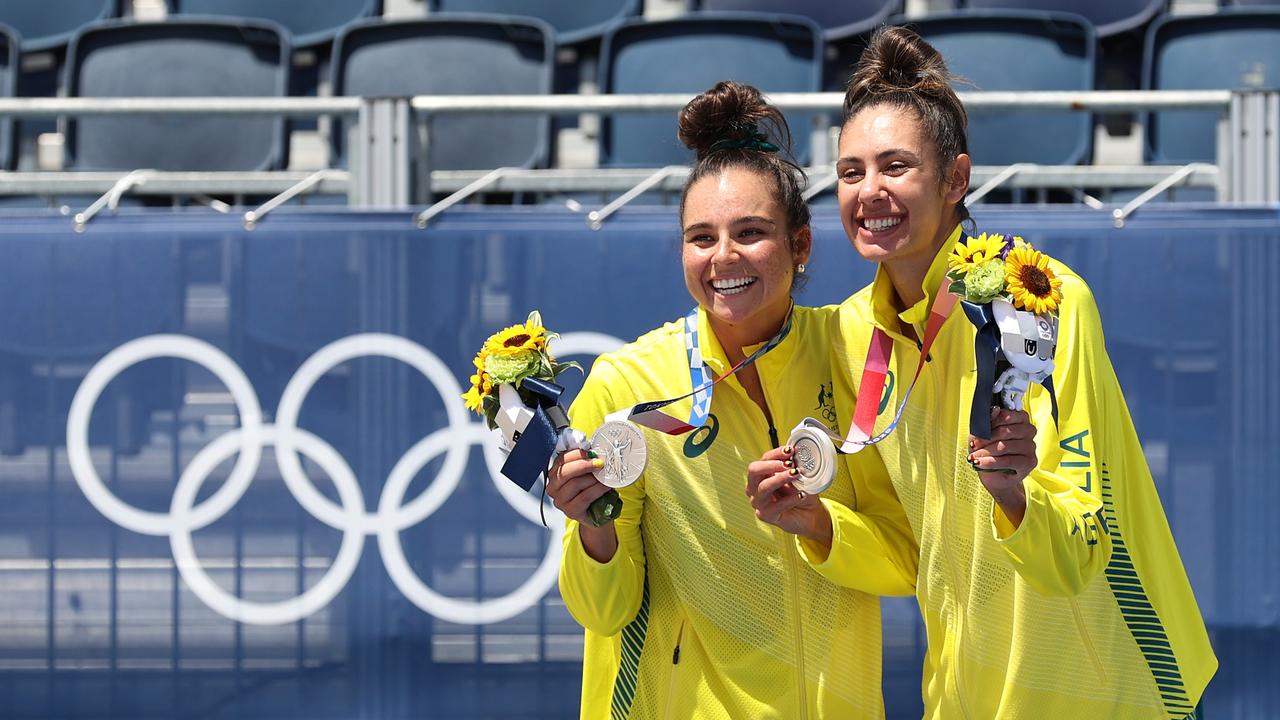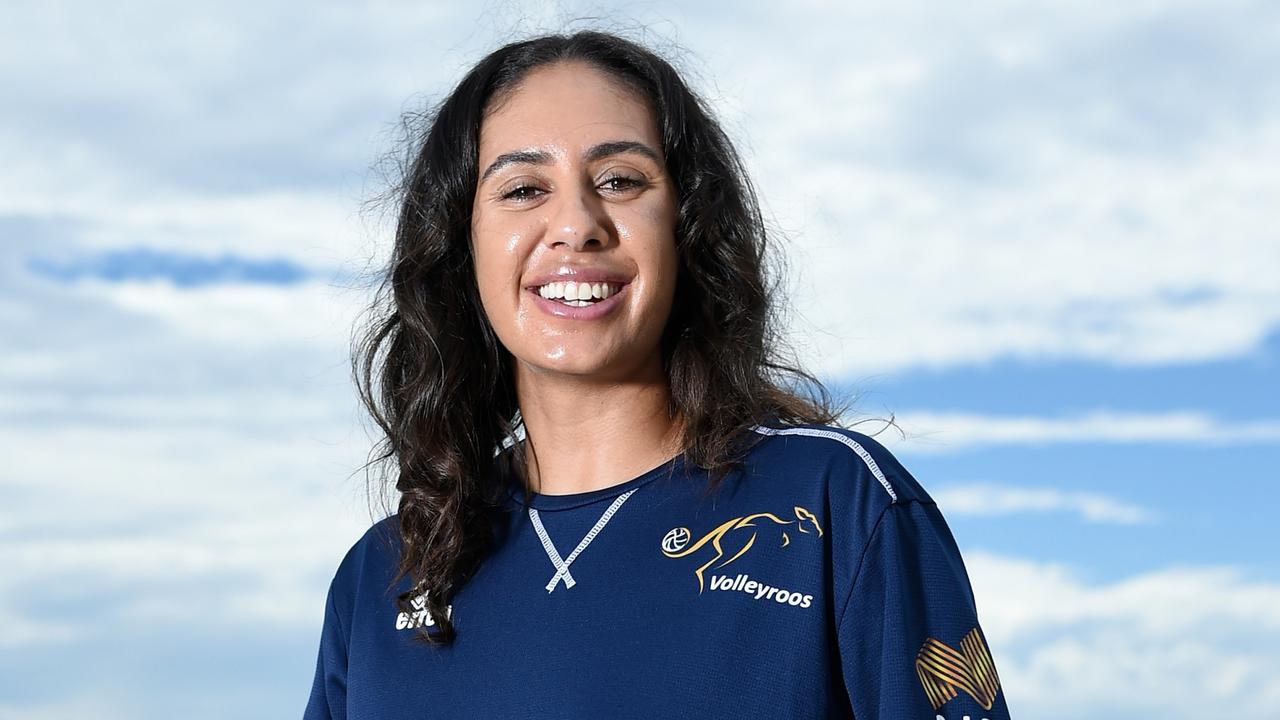First Nations Olympian Taliqua Clancy inspired by Cathy Freeman
Indigenous Sport Week: the first Indigenous Australian Olympic beach volleyballer recalls the defining moment a First Nations champion proved Olympic dreams really do come true

READING LEVEL: GREEN
It was the moment that inspired beach volleyball great Taliqua Clancy to go for gold.
When she was just eight, the proud Wulli Wulli and Goreng Goreng woman watched as First Nations great Cathy Freeman won gold at the 2000 Olympics – a moment that would go down in Australian sporting history.
As the track champion completed a victory lap carrying both the Australian and Aboriginal flags, it lit a fire in young Clancy’s belly.
This Indigenous Sport Week, the silver medallist said seeing a First Nations person win gold at the Olympics gave her the strength and determination to follow her own Olympic dreams.
“Now, sitting back, it is one of those moments which really solidified the steps to wanting to become a professional athlete, wanting to become an Olympian,” she said.
“Those moments in time helped me down the path to becoming an Olympian.”

More than two decades on, Clancy, now 31, has been showing a new generation of Indigenous kids what Cathy Freeman showed her in 2000 – that being an Olympic hero is possible.
“For me, I know how important representation is, especially for the younger kids who have big goals,” she said. “It’s not just being an athlete.”
A natural athlete, she first came across beach volleyball in high school and quickly rose to the top of the sport.
At Rio in 2016, she became the first Indigenous Australian beach volleyballer to represent her country at an Olympic Games.
Since then, she’s gone from strength to strength.
Clancy and Mariafe Artacho del Solar, her playing partner since 2017, won silver at the Tokyo Games and will this year be looking to go one better – they will be playing for gold.

While they have a laser-like focus on being the world’s best, Clancy’s years on the world stage have always been about more than just results.
She is an ambassador for Deadly Choices, an organisation that empowers Aboriginal and Torres Strait Islander people to make health choices for themselves and their families.
“I love being a part of that,” she said. “With all the education that I have, I want to be able to give back to the community and I feel like that’s the best way to do it.
“I think it’s just so important to promote healthy lifestyles and going out and getting their health checks.”

The role has taken Clancy, who comes from Kingaroy in regional Queensland, to communities in remote parts of the nation to speak about the importance of good health practices.
She said she gained as much as she gave through the work.
“I love being able to spend time, especially with the younger kids,” Clancy said.
“And hanging around the elders as well is really special, just to listen to their stories.
“It feels like a bonus for me. I can help and then also it just fills my cup as well.”
POLL
GLOSSARY
- solidified: strengthened
- representation: seeing other Indigenous people achieving great things and earning respect from the wider community, and this being portrayed in the media
EXTRA READING
Aussie wins gold at art Olympics
Andy Griffiths’ Book Swap splash
Oz Olympians model new uniforms
QUICK QUIZ
1. What inspired Taliqua Clancy to become an Olympian?
2. How old was she when she felt this fire in her belly?
3. Why was the Rio Olympics important for Indigenous representation in beach volleyball?
4. Which medal did Clancy and her beach volleyball partner win at the Tokyo Games?
5. What does Clancy do in her role as ambassador for Deadly Choices?
LISTEN TO THIS STORY
CLASSROOM ACTIVITIES
1. What would you see?
If you had the chance to give something back to your community, like Taliqua does, what would you do? Write a description of what you would do and why you think this is important.
Time: allow at least 20 minutes to complete this activity
Curriculum Links: English, Personal and Social Capability
2. Extension
‘Representation is important because …’ Write a detailed paragraph that starts with this phrase. Use information from the story and your own ideas to help you. Use lots of great examples to help make your writing as convincing as possible.
Time: allow at least 30 minutes to complete this activity
Curriculum Links: English, Personal and Social Capability
VCOP ACTIVITY
Imaginative dialogue
Imagine you were there during the event being discussed in the article, or for the interview.
Create a conversation between two characters from the article – you may need or want to include yourself as one of the characters. Don’t forget to try to use facts and details from the article to help make your dialogue as realistic as possible.
Go through your writing and highlight any punctuation you have used in green. Make sure you carefully check the punctuation used for the dialogue and ensure you have opened and closed the speaking in the correct places.

